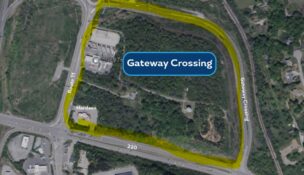Two Virginia CEOs were at Mount Everest shortly before and during the fatal avalanche
Two Virginia CEOs were at Mount Everest shortly before and during the fatal avalanche
Looking back, it seemed like an ominous signal. The first night Virginia CEO Michael MacNair slept in a tent at the base camp on Mount Everest, he was awakened by the sound of an avalanche. “I just laid there and wondered if someone would tell me if I needed to run,” he says.
The next morning when MacNair, president and CEO of MacNair Travel Management/American Express in Alexandria, asked about the sound, the general consensus around the camp was “that happens all the time.” Since the camp — 18,000 feet up — is located in what MacNair describes as an amphitheater of Himalayan Mountains, avalanches occur, but they are not always close by.
Two days later, on April 18, an avalanche at the Khumbu Icefall, a dangerous ice field 20 minutes from the base camp, killed 13 Sherpa guides.
MacNair had left the base camp two days before and was trekking down the world’s tallest mountain when the tragedy occurred. Although he has climbed Mount Rainier (14,410 feet above sea level) and Mount Kilimanjaro (19,310 feet), he wasn't planning to try for the 29,000-foot summit of Mount Everest.
“Beyond base camp is not in my repertoire,” says the 52-year-old executive. “Trekking for a sustained period of time in high altitudes is a great challenge. I lost 15 pounds. The next step to the summit is a life-changing, life-threatening investment that is past my threshold … I just wanted to go up and look at the belly of the beast and make sure that I would never go up, and that’s what I did.”
Sherpas, members of a small ethnic group with keen mountaineering skills, lead expeditions on Everest and were part of the group that got MacNair’s party to base camp. He describes them as an impressive people. “The Sherpas are incredibly sweet, hard-working and a powerful and committed people … They smile and do their work every day. You would see some of these folks with an inconceivable amount of luggage and equipment on their backs, and you would just scratch your head.”
MacNair says some of the Sherpa guides in his group were hanging out with Sherpas who later lost their lives. “I was with this collective group of the Sherpas. It was quite sad.”
With him at base camp was a mountain-climbing friend, John Carney, a Virginia CEO who heads up Interactive, an online learning company in Alexandria. He did plan a summit attempt. It would be Carney’s second effort to climb the additional 10,000 or so feet up to reach the summit. However, MacNair says Carney’s expedition company cancelled their trip after the deadly avalanche.
According to him, Carney was at base camp the day of the avalanche. “He heard and saw the avalanche and the big cloud,” MacNair said, referring to the icy cloud of air that precedes an avalanche when snow and ice come crashing down.
The cost of MacNair's trip to the base camp was $4,000, plus his airline ticket, he said, while the cost of a summit attempt, which adds another 30 days, costs about $40,000.
MacNair, who competes in triathlon, iron-man events, planned his Everest trip as part of a celebration of his company’s 25th anniversary. “It was somewhat of a mental and physical sabbatical from the company to allow me to think and reflect upon what we were going to do for the next 25 years.”
While an 18-hour plane trip and a three-week trek though the world’s highest mountains isn’t everyone’s idea of a sabbatical, MacNair says the trip gave him confidence. For one thing, he learned that his company, which employs 52 people and has annual sales of nearly $70 million, could run smoothly without him being connected every single minute. “To be able to walk away from your business as a CEO and not worry about it and not be connected at every minute is a testament to the kind of people we have.”
Plus, he completed his journey successfully despite two knee surgeries and being blind in his left eye. “Going there was a test to see if I could circumvent those two things. I’ve come home more confident.”
Despite the tragedy on the mountain, MacNair says he doesn’t plan to give up adventurous travel, and he returned home with some new plans for his company.
“I said no to the tallest mountain in the world, but I’m not necessarily going to say no to some other very respectable mountains that are smaller than Everest.”
l

















